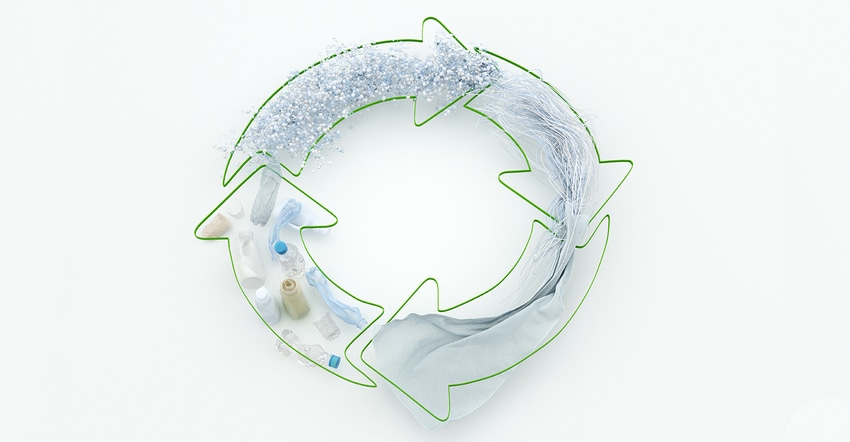Honeywell Mixed Waste Plastic Recycling Technology Goes Bigger
Biotrend Energy in Turkey will use Honeywell UOP Upcycle Technology to transform up to 60,000 metric tons yearly of mixed waste plastics into advanced recycled polymer feedstock.
April 4, 2023

Honeywell signed equipment supply, production license, and warranty agreements with Biotrend Energy, Istanbul, Turkey, to build the country’s first commercialized advanced waste recycling plant using Honeywell UOP UpCycle Process Technology. The facility will convert mixed waste plastics into recycled polymer feedstock (RPF), helping enable the development of a circular economy for plastics in the region.
Two parallel 30,000 metric ton units of modular design will be built in the Izmir region of Turkey and are expected to start up in 2025. The planned advanced recycling plant is expected to have the capacity to transform 60,000 metric tons/66,139 tons of mixed waste plastics into RPF per year, twice the amount of the originally projected 30,000 metric tons that was announced in 2022. Biotrend Energy will provide the feedstock for the plant and Honeywell UOP will provide related engineering and technical services, including startup, commissioning, and technical support services during the plant’s lifetime.
The advanced recycling facility for plastics will be a first-of-a-kind in Turkey and in the world.
“There is an increasing demand for recycled plastic products as a result of the circular economy commitments made by the world's leading companies, and Honeywell UOP UpCycle Process Technology can support Biotrend’s efforts to increase recovery volumes of circular materials,” says Salih Tuncer Mutlucan, member of the board of directors of Biotrend Çevre ve Enerji Yatırımları A.Ş. “The advanced recycling facility we plan to establish in Turkey will be one of the first in the world, the facility will be able to recycle original raw plastic material and enable a true circular economy.”
Currently, Biotrend Energy is only able to recover a low percentage of mechanically recycled materials. Moreover, there are some types of plastic waste that cannot be recycled mechanically due to certain process limitations caused by contamination, colors, and additives used in plastic production. Currently, the plastics that cannot be mechanically recycled are either converted into Refuse Derived Fuel (RDF) or end up in landfills.
“Honeywell has the proven technology to help shape the energy transition and our collaboration with Biotrend will dramatically increase the amount of plastic that can be recycled in Türkiye,” says Uygar Doyuran, Honeywell’s President of Turkey, Israel, and Central Asia. “Together, Honeywell and Biotrend can help enable a circular economy for plastics by converting mixed waste plastics into recycled polymer feedstock. Honeywell’s participation as an investor in this project with Biotrend demonstrates how much we trust our technology. The high performance of our UpCycle Technology gives us great confidence in the success of this collaboration.”
The announcement expands the UpCycle Process Technology footprint and marks an important milestone of making this project a reality while building on Honeywell's recent announcements in the US, South Korea, and China.
Waste management pioneer Biotrend Energy processes 4,500,000 tons of waste per year.
Biotrend Energy is one of the pioneers of the integrated waste management industry in Turkey and processes 4,500,000 tons of waste per year at 18 facilities (including pre-licensed plants) within Turkey. Biotrend Energy’s activities include waste transfer, recycling, landfill, waste to energy, and production of organic fertilizer aka compost, and RDF.
Honeywell UOP’s UpCycle Process Technology is a ready-now advanced plastics recycling technology that utilizes industry-leading molecular conversion, pyrolysis, and contaminants management technology to convert waste plastic to RPF, which is then used to create new plastics. The UpCycle Process Technology expands the types of plastics that can be recycled to include waste plastic that would otherwise go unrecycled, including colored, flexible, multilayered packaging, and polystyrene.
Honeywell is committed to achieving carbon neutrality in its operations and facilities by 2035. This commitment builds on the company’s track record of sharply reducing the greenhouse gas intensity of its operations and facilities as well as its decades-long history of innovation to help its customers meet their environmental and social goals. Approximately 60% of Honeywell’s new product introduction research and development investment is invested in products that improve environmental and social outcomes for customers.
You May Also Like


